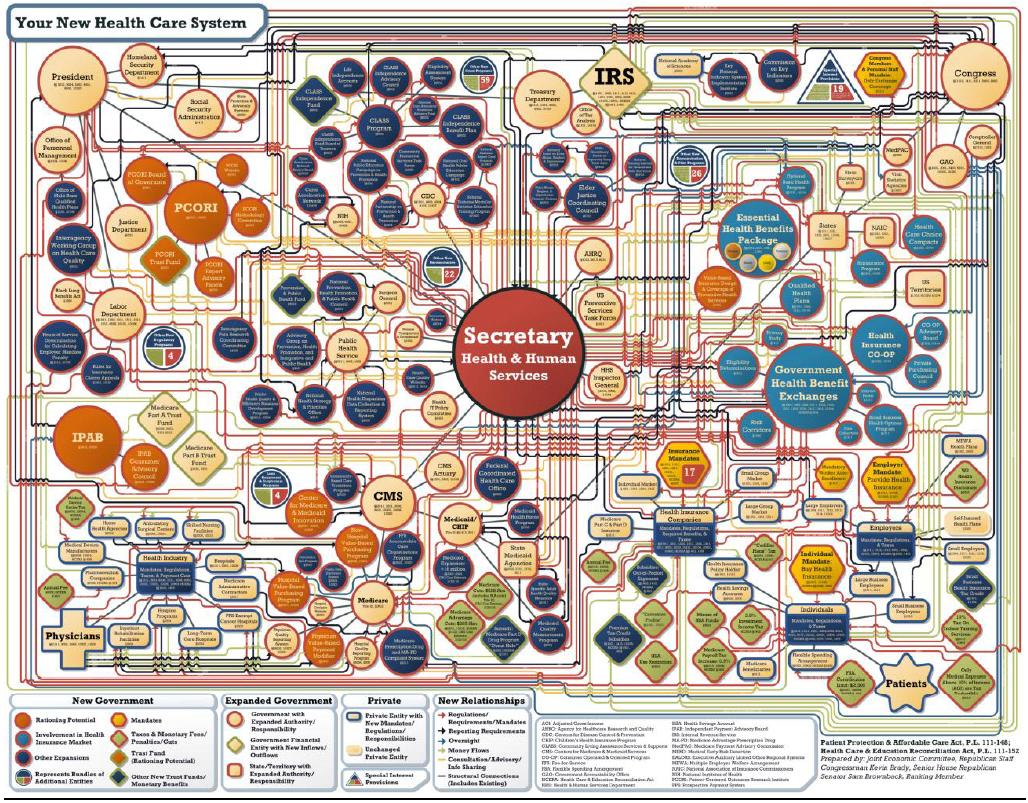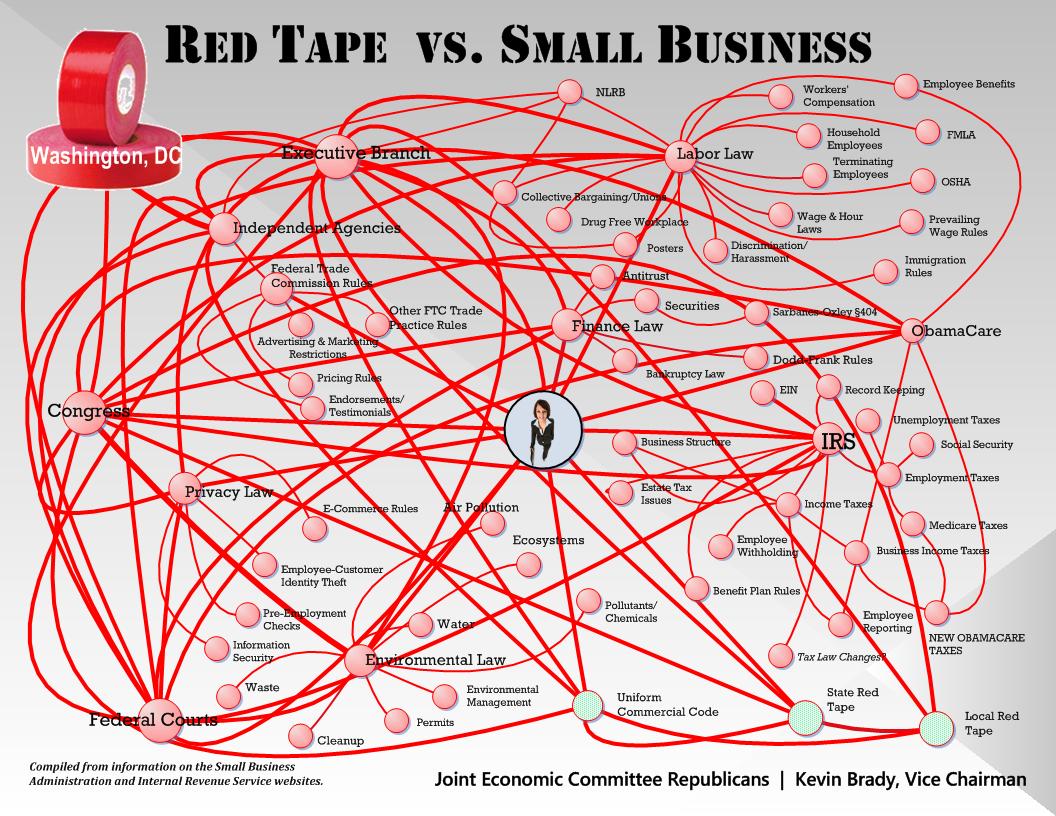
President Obama recently got himself in a bit of hot water with his “you didn’t build that” remark, which trivialized the hard work of entrepreneurs.
But he is right — in a perverse way — about government playing a big role in the life of small businesses. Thanks to a maze of regulations, the government is an unwelcome silent partner for every entrepreneur. And we’re not talking small numbers.
- Americans spend 8.8 billion hours every year filling out government forms.
- The economy-wide cost of regulation is now $1.75 trillion.
- For every bureaucrat at a regulatory agency, one study estimated that 100 jobs are destroyed in the economy’s productive sector.
But sometimes an image helps to make things easy to understand. Here’s a chart from the Joint Economic Committee which maps out the web of regulation imposed by Washington.
This chart does more than just show sources of red tape coming from Washington. It shows that “Washington” is really several entities, such as Congress, the executive branch, the courts, and so-called regulatory agencies.
These varies entities then impose regulatory burdens in various fields, such as labor, finance, tax, and environment.
 Keep in mind, by the way, that each small pink circle actually represents an entire field of regulation. So when you see, for instance, the “Obamacare” circle, what you’re really seeing is this nightmarish image of regulatory complexity.
Keep in mind, by the way, that each small pink circle actually represents an entire field of regulation. So when you see, for instance, the “Obamacare” circle, what you’re really seeing is this nightmarish image of regulatory complexity.
And don’t forget the role of state and local government.
Last but not least, remember that each regulatory bureaucracy is then capable of making individual decisions that… well, you judge for yourself.
- Putting a store out of business for selling toy guns.
- Regulations making it difficult for trucking firms to weed out drunk drivers.
- Year-long sting operations by federal milk police.
- Rules harassing coffee shops with bikini-clad sales staff.
- OSHA requirements for expensive safety harnesses for people working 11 feet off the ground.
- Rules from the EEOC for “pee-shy” employees.
- The IRS making banks put foreign tax law above US tax law.
Gee, it’s almost enough to make you think regulation might be the problem and not the solution.


COMMENTS
Please let us know if you're having issues with commenting.